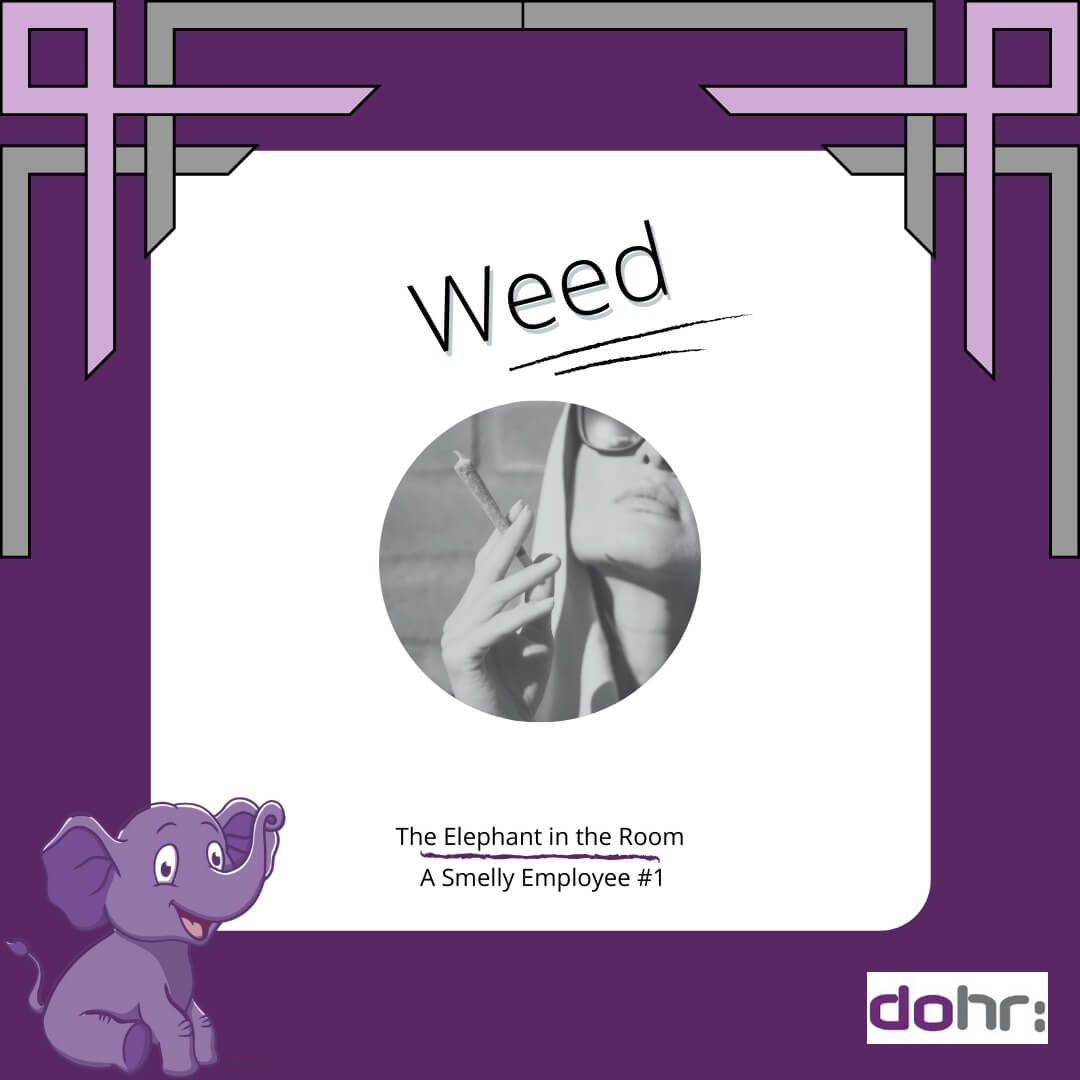Some people will recognise the smell of weed a mile off. Others will never have come into contact with people smoking weed, but they are aware of a strange smell.
Weed is cannabis. It is a drug. Also known as marijuana, pot, grass and dope, weed is illegal in the UK.
As an employer, you are likely to have a zero-tolerance policy on drugs and alcohol in the workplace and there are lots of reasons for this, some legal, some moral and some operational.
There are two main issues which could cause your business a problem if you smell weed on an employee. They could be using it for personal use only, either for pleasure or for pain relief. Alternatively, they could be dealing.
Like with the advice we have been giving over the past few days*, you can’t ignore it. You must have a conversation about your concerns. In many cases, an employee smelling of weed is raised by other members of staff as a concern or complaint – especially if it affects their behaviour or judgement. We tend to find that people are aware of the smell, know what it is but don’t want to get involved until there is an impact.
The smell is the symptom and a signal that you need to act. Don’t wait for the impact – it’s like trying to shut the stable door after the horse has bolted.
In some cases, it may be best to have an open conversation first and ask the employee why you can smell weed on them. You can tell them that you have had complaints, although with this approach, I wouldn’t name the ‘complainers’. I am an advocate of a questioning approach, taking someone down a funnel with questions designed get the employee to identify the problem, the impact and the outcome.
In other cases, it may be best to move straight to a disciplinary via a proper investigation. You must follow your company policy and you need your evidence to be strong and gathered ‘legally’. If you are using images or video then you must have a policy which tells people you are recording them at work. If you have carried out a ‘locker’ check or a ‘personal possessions’ check, ensure you have a policy which allows you to do so. In this situation, any complaints or witness statements should be used, with permission of the witness.
The outcome of a disciplinary process can range from no action to termination with a number of penalties in between. The key is to follow your own policies and procedures at all times and to be consistent between employees.
* To read our previous blogs on The Elephant in the Room and Smelly Employees, visit www.dohr.co.uk/blog





